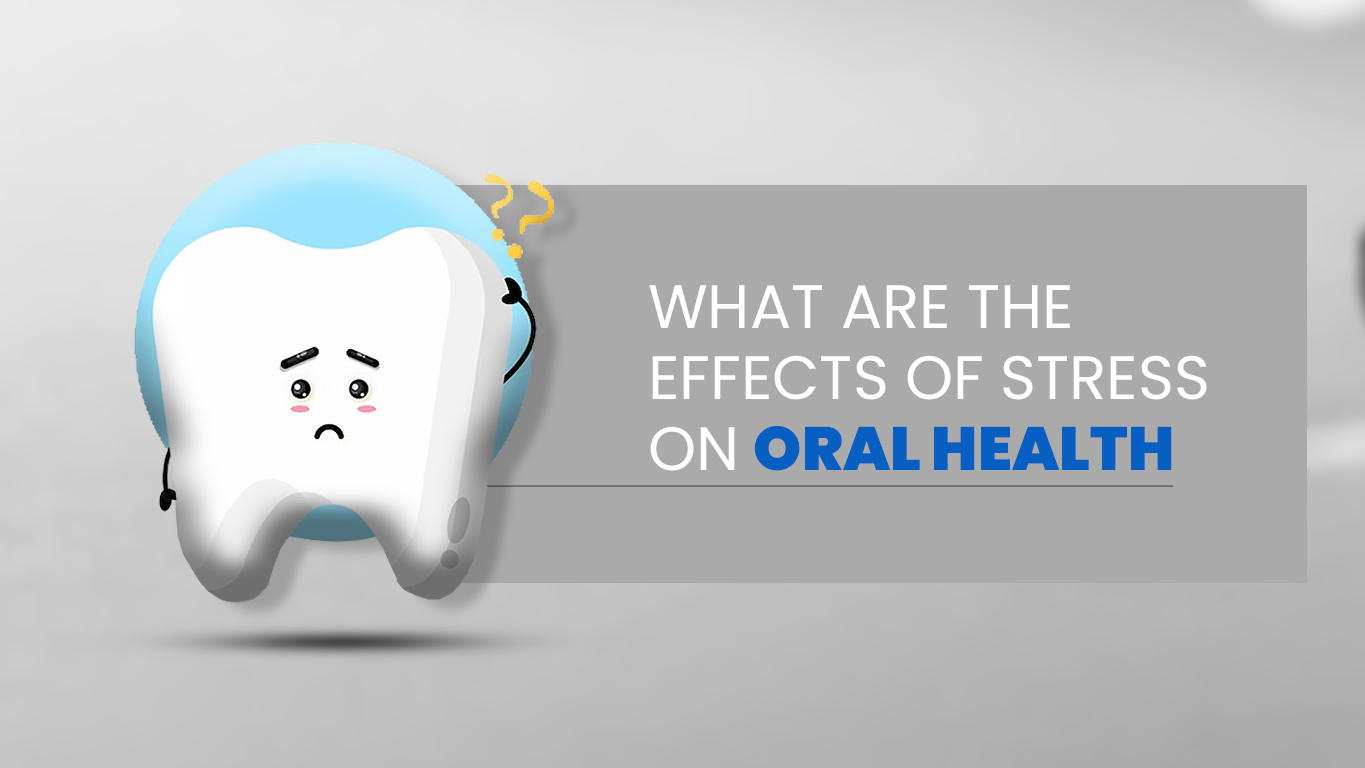What are the effects of stress on oral health?

Stress is one of the most common issues people deal with every day. For some, it can be a major factor in their overall health, while for others, it might be something they can manage easily. However, even though stress might not have major effects on everyone, it still has various effects on oral health. In this article, we will look at those effects and discuss how you can best manage your stress levels if you want to stay healthy and maintain good oral hygiene.
Effects of Stress on oral health
Poor oral hygiene
Some things such as dental hygiene may become less important when stressed, and you may be tempted to eat unhealthy, mood-boosting foods. These foods include caffeine, sugar, and carbs. Such unhealthy foods can cause plaque and tartar build-up, resulting in dental cavities or tooth decay.
Dry Mouth
Dry mouth is a common problem that can be caused by stress. When people are stressed, their bodies release cortisol, which can dry out the mouth and decrease saliva production. This can lead to bad breath, toothaches, and other dental problems.
Clenched Jaws
Clenched jaws are another effect of high-stress levels. Fear and anxiety can cause muscles in the face to tense up, which in turn causes the teeth to clench together. This can lead to a dental condition known as TMJ, which causes pain in your jaws and around the ears. You may experience some difficulties while talking or chewing. You might also hear some clicking noise around the temporomandibular joint.
Teeth grinding
Some people unconsciously grind their teeth against each other when stressed. This type of grinding can cause damage to the enamel and lead to tooth decay and other Oral Health problems.
How to Reduce or Manage Stress Levels
To reduce or manage stress levels, consider these tips:
- Exercise releases endorphins, which are hormones that reduce stress and improve mood. A 20-minute walk weekly should be sufficient.
- Spend time with friends and family. Socializing has been shown to help reduce stress levels.
- Take care of your dental hygiene. Poor oral health can lead to increased stress, leading to worsening dental hygiene habits. Regular check-ups and cleanings can help lessen the impact of stress on oral health.
Bottom Line
Stress has been shown to have a number of effects on oral health as discussed above. It can reduce saliva production, which can lead to a dry mouth and gingivitis. It can also increase the risk of cavities and periodontal disease. In order to keep your teeth and gums healthy during stressful times, find ways to reduce or eliminate the sources of stress in your life. Take some time for yourself each day to relax; this will help you maintain good oral hygiene and overall health.
If you suspect that your dental health is not optimum due to the effects of stress, make a point and visit us at Springvale Dental Clinic. Our Springvale dentist will take a dental examination and recommend the best solution.



